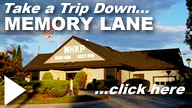U.S. Rep. Chuck Edwards has re-introduced the Promoting Resilient Buildings Act, which aims to ease regulatory burdens on states, homebuilders and cities and counties.
Every three years, the International Code Council is tasked with publishing an updated set of international building codes that includes the world’s safest and most efficient building practices to reduce risk from natural disasters and other environmental hazards. The most recent edition was published in 2024.
Once the ICC publishes their new codes, states are required to update their building codes to comply with the most recent edition of the International Building Code. Updating building codes is a lengthy, burdensome process for states, resulting in many states not updating their codes. This leads to America’s homes being built according to outdated, less-resilient standards.
The Promoting Resilient Buildings Act provides greater flexibility to state and local governments, thereby increasing adherence to codes and preserving and promoting more resilient buildings in communities to make sure that they are prepared for disaster if it ever strikes.
“The Promoting Resilient Buildings Act will reduce burdensome red tape on trade industries, state and local governments, and communities in Western North Carolina while enhancing their resiliency against potential environmental and structural disasters," Edwards said. "This bill is more important now than ever as Western North Carolina recovers from Hurricane Helene. The last thing our economy needs is another regulation driving up housing costs, and this bill will make sure building codes don’t add to an increase by making permanent common-sense reforms to our building codes system.”
The bill is also expected to stabilize building costs by reducing the frequency that the trade industry must adapt their techniques to meet new codes.
Lastly, the Promoting Resilient Buildings Act will create a pilot program as part of the Federal Emergency Management Agency’s (FEMA) Building Resilient Infrastructure and Communities program to allow families to safety proof their homes using grant money.
Democratic U.S. Rep. Dina Titus of Nevada is co-lead of the bipartisan legislation.
"I am proud to co-lead the Promoting Resilient Buildings Act of 2025 which will ensure that homebuilders and local governments have much-needed flexibility in disaster mitigation planning and building," she said. "Last year’s devastating hurricanes and record-breaking heat magnify the need for legislation to prepare our communities. I’m proud that this bill includes my proposal to create a pilot program for retrofitting homes to make them more resilient to the impacts of natural disasters, giving homeowners an extra layer of protection.”
The National Association of Home Builders "commends Rep. Edwards for introducing the Promoting Resilient Buildings Act," Chairman Carl Harris said. "He championed this legislation in the 118th Congress because he opposes needless regulatory mandates that raise housing costs. This bill will help ease the nation’s housing affordability woes by preserving local control over the code adoption process. In turn, this will help builders build more homes and reduce housing costs.”

















